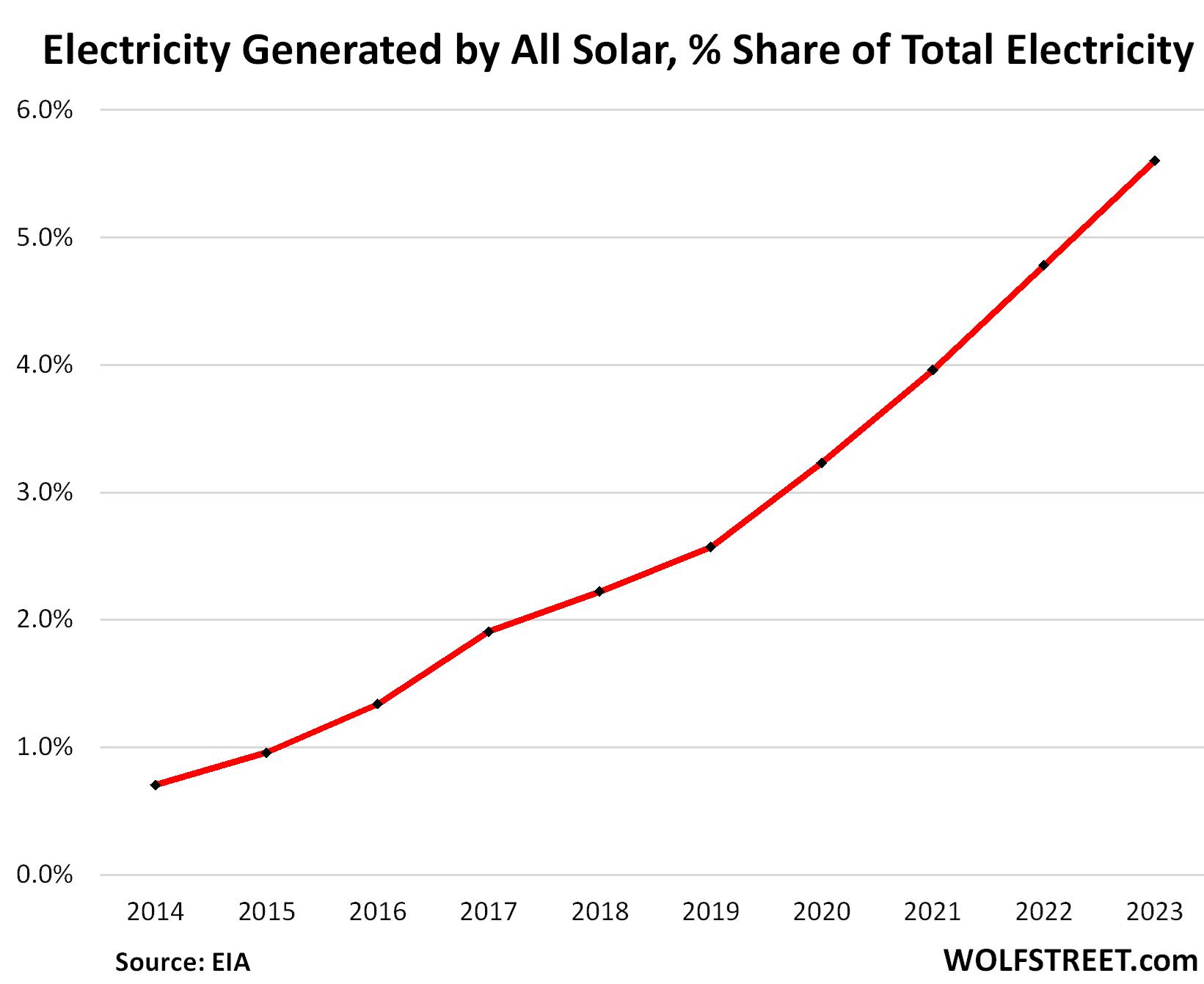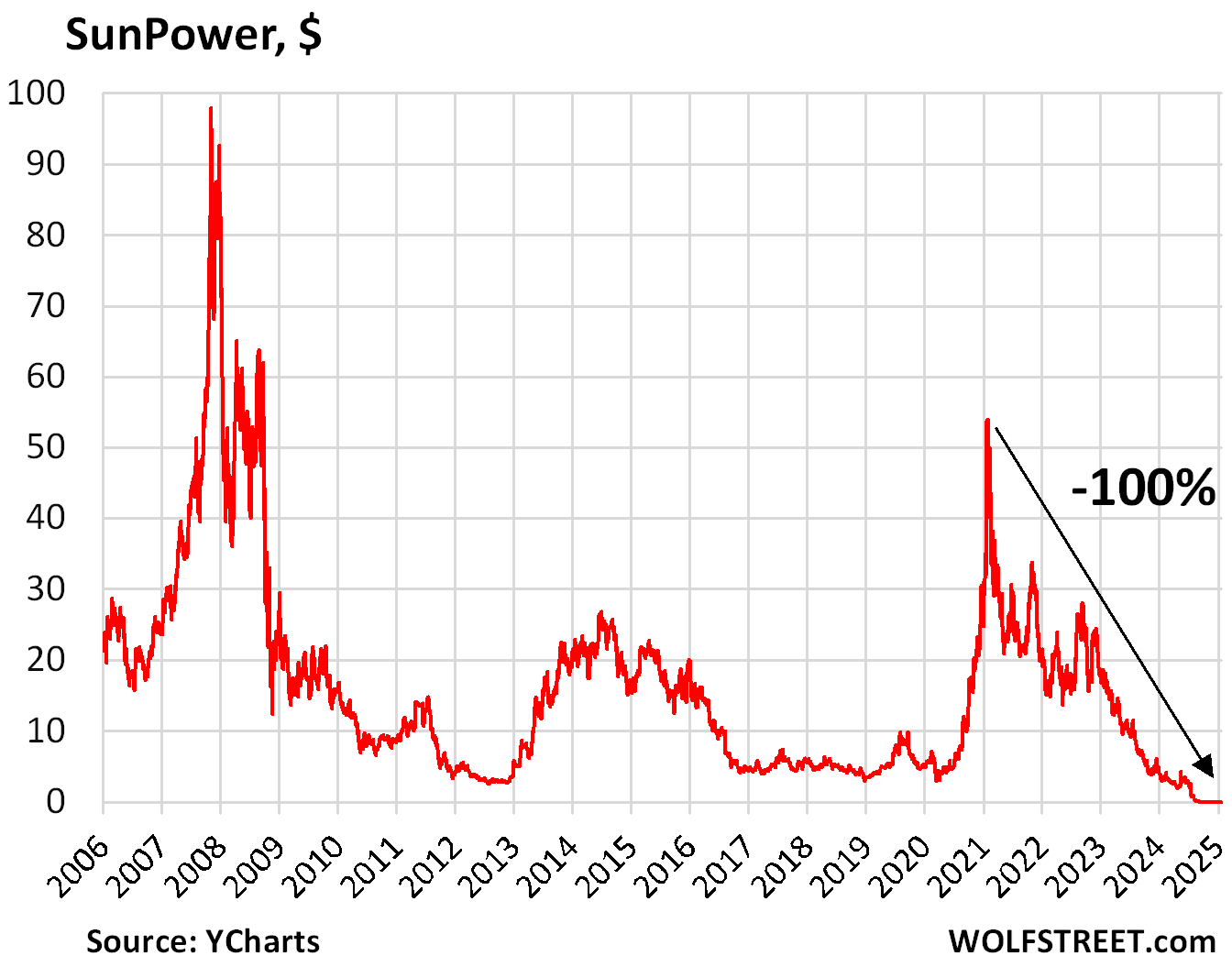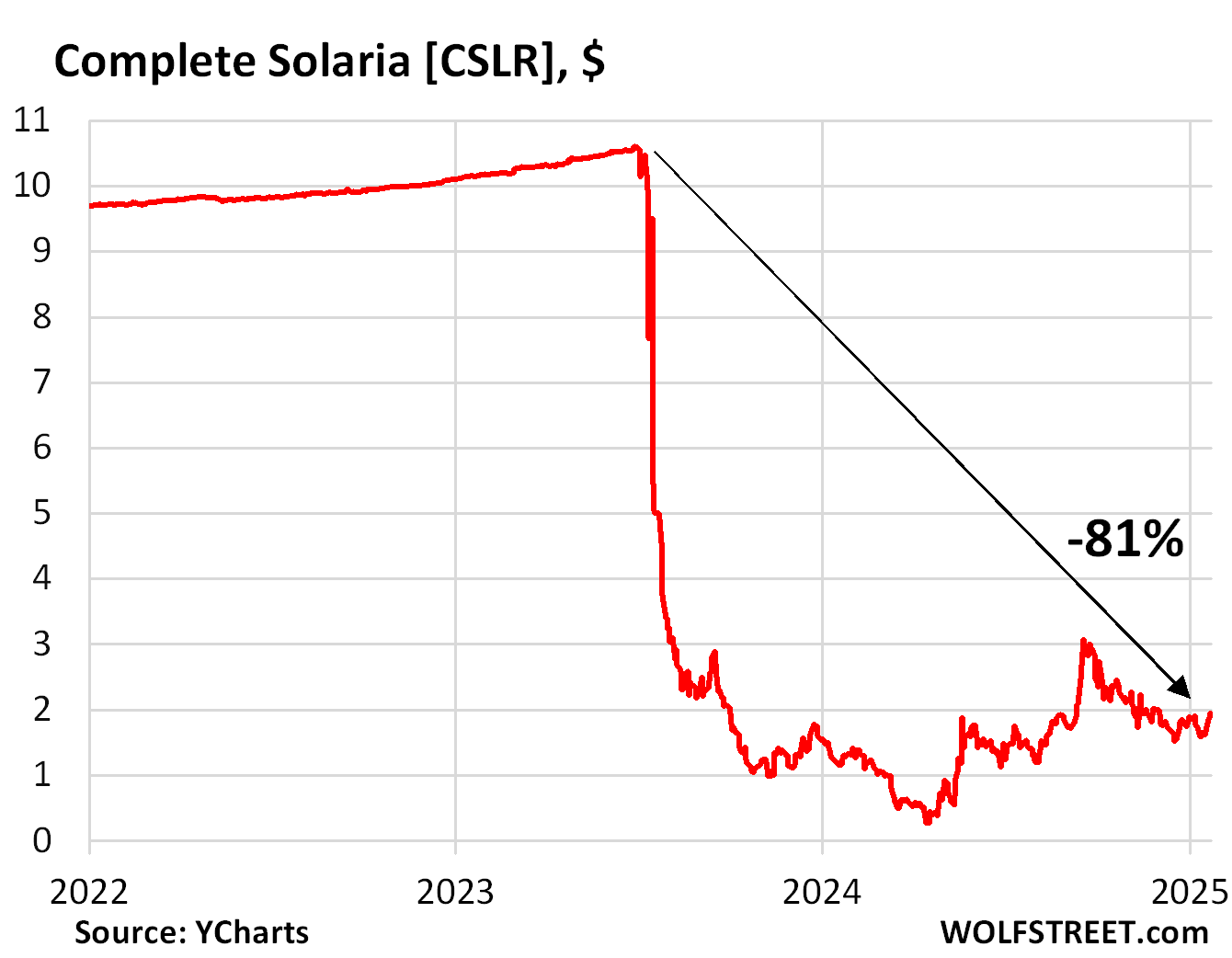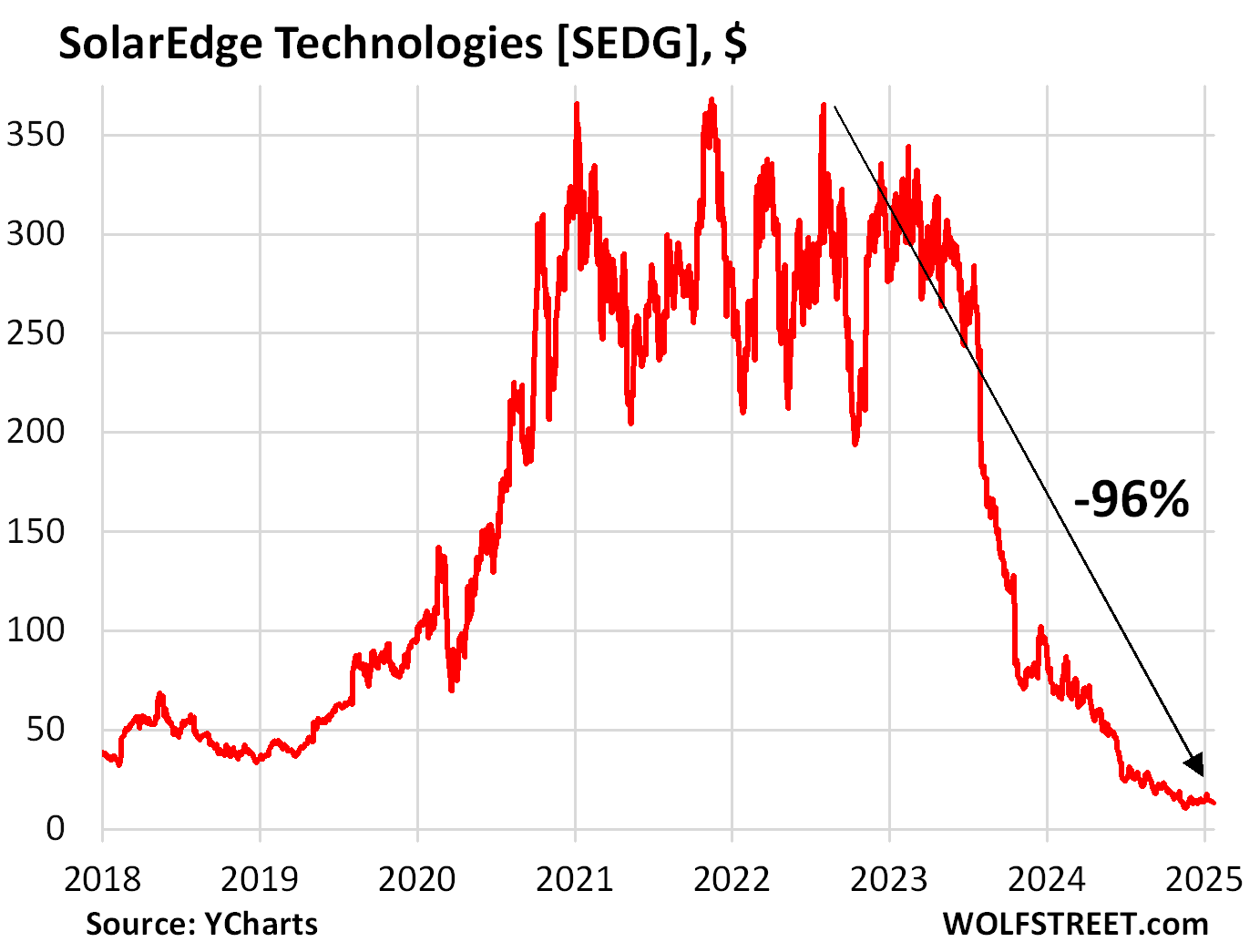....Elon Reeve Musk -- Chief Executive Officer and Product Architect
Thank
you. So, in summary, in Q4, we set record and delivered vehicles at an
annualized rate of nearly 2 million a year. So, congratulations to the
Tesla team on excellent work, achieving record production and
deliveries. Model Y was the best-selling vehicle of any kind for 2024.
That's
worth noting. Not just the best electric vehicle, the best vehicle of
any kind on Earth, No. 1 was Model Y. We are staying focused on
maximizing volumes and obviously doubling down -- I don't know what --
really, I was going to say doubling down in autonomy, but really, it's
like autonomy is like 10x-ing frankly.
Doubling is not even
enough. We made many critical investments in 2024 in manufacturing, AI
and robotics that will bear immense fruit in the future, immense. Like
it's, in fact, to such a scale that it is difficult to comprehend. And
I've said this before and I'll stand by it.
I see a path. I'm not
saying it's an easy path but I see a path of Tesla being the most
valuable company in the world by far. Not even close, like maybe several
times more than -- I mean, there is a path where Tesla is worth more
than the next top five companies combined. There's a path to that.
I
mean, I think it's like and incredibly it's like a difficult path but
it is an achievable path. And that is overwhelmingly due to autonomous
vehicles and autonomous humanoid robots. So, our focus is actually
building toward that. And then that's where we're laying the ground.
We
laid the groundwork for that in 2024. We'll continue to lay the
groundwork for that in 2025. In fact, more than laying the groundwork,
actually started building the structure. We're building the
manufacturing lines.
And I'd like -- setting up for what I think
will be an epic 2026 and a ridiculous '27 and '28, ridiculously good.
That is my prediction. As you very few people understand the value of
self-driving and our ability to monetize the fleet. Some of these things
I've said for quite a long time, and I know people have said, "Well,
Elon, the boy who cried like a wolf like several times." But I'm telling
you, there's a damn wolf this time and you can drive it.
In
fact, it could drive you. It's a self-driving wolf. For a lot of people,
like their experience of Tesla Autonomy is like if it's even a year
old, if it's even two years old, it's like meeting someone when they're
like a toddler and thinking that they're going to be a toddler forever.
But obviously not going to be a toddler forever.
They grow up.
But if their last experience was like, "Oh, FSD was a toddler." It's
like, well, it's grown up now. Have you seen it? It's like walks and
talks. And that's really what we've got.
And it's difficult for
people to understand this because human intuition is linear as opposed
to what we're seeing is exponential progress. So, that's why my No. 1
recommendation for anyone who doubts is simply try it. Have you tried
it? When's the last time you tried it? And the only people who are
skeptical, the only people who are skeptical are those who have not
tried it.
So, a car goes -- a passenger car typically has only
about 10 hours of utility per week out of 168, a very small percentage.
Once that car is autonomous, my rough estimate is that it is in use for
at least a third of the hours per week, so call it, 50, maybe 55 hours
of the week. And it can be used for both cargo delivery and people
delivery. So, even, let's say, people are askeep but you can deliver
packages in the middle of the night or resupply restaurants or whatever
the case may be, whatever people need at all hours of the day or night.
That
same asset, the thing that -- these things that already exist with no
incremental cost change, just a software update, now have five times or
more the utility than they currently have. I think this will be the
largest asset value increase in human history. Maybe there's something
bigger but I just don't know what it is. And so, people who would look
in the rearview mirror are looking for past precedent, except I don't
think there is one.
So, look, the reality of autonomy is upon us.
And I repeat my advice, try driving the car or let it drive you. So,
now it works very well in the U.S., but of course, it will, over time,
work just as well everywhere else. Yes, so we're working hard to grow
our annual volumes.
Our current constraint is battery packs this
year but we're working on addressing that constraint. And I think we
will make progress in addressing that constraint. And then things are
really going to go ballistic next year and really ballistic in '27 and
'28. So, yes, so a bit more on full-self-driving.
Our Q4 vehicle
safety report shows continued year-over-year improvement in safety for
vehicles. So, the safety numbers, if somebody has supervised full self-
driving turn on or not, the safety differences are gigantic. And people
have seen the immense improvement with Version 13, and with incremental
versions in Version 13 and 14 is going to be yet another step beyond
that, that is very significant. We launched the Cortex training cluster
at Gigafactory Austin, which was a significant contributor to FSD
advancement.
And we continue to invest in training infrastructure
out of Texas headquarters. So, the training needs for Optimus humanoid
robot, are probably at least ultimately 10x of what is needed for the
car, at least to get to the full range of useful role. You can say like
how many different roles are there for a humanoid robot versus a car? A
humanoid robot has probably 1,000 times more uses and more complex
things than in a car. That doesn't mean the training scales by 1,000 but
it's probably at 10x.
Now you can do this
progressively, so it doesn't mean like Tesla's going to spend like $500
billion in training computer because we will obviously train Optimus to
do enough tasks to match the output of robots. And obviously, the cost
of training is dropping dramatically with time. But it's one of those
things where I think long-term, Optimus has the potential to be north of
$10 trillion in revenue, like it's really bananas. So, that you can
obviously afford a lot of training compute in that situation.
In
fact, even $500 billion training compute in that situation will be
quite a good deal. Yes, the future is going to be incredibly different
from the past, that's for sure. We live at this unbelievable inflection
point in human history. So, yes, so the proof is in the pudding.
So,
we're going to be launching unsupervised full self-driving as a paid
service in Austin in June. So, I talked to the team. We feel confident
in being able to do an initial launch of unsupervised, no one in the
car, full self-driving in Austin in June. We already have Teslas
operating autonomously unsupervised full self-driving at our factory in
Fremont, and we'll soon be doing that at our factory in Texas.
So,
thousands of cars every day are driving with no one in them at our
Fremont factory in California, that we'll soon be doing that in Austin
and then elsewhere in the world, the rest of our factories, which is
pretty cool. And the cars aren't just driving to exactly the same spot
because, obviously, they want to collide at the same spot. The cars are
actually programmed with where -- with what lane they need to park into
to be picked up for delivery. So, the drive from the factory end of line
to their destination parking spot and to be picked up for delivery to
customers and then doing this reliably every day, thousands of times a
day.
It's pretty cool. Like I said, these Teslas will be in the
wild with no one in them in June in Austin. So, what I'm saying is this
is not some far-off mythical situation. It's literally five, six months
away, five months away kind of thing.
And while we're stepping --
putting our toe in the water gently at first just to make sure
everything is cool, our solution, our sort of solution is a generalized
AI solution. It does not require high precision maps of locality. So, we
just want to be cautious. It's not that it doesn't work beyond Austin.
In
fact, it does. We just want to put our toe in the water, make sure
everything is OK, then put a few more toes in the water, then put a foot
in the water with safety of the general public as and those in the car
as our top priority. With regard to Optimus, obviously, I'm making these
revenue predictions that sound absolutely insane, I realize that. But
they are -- I think they will prove to be accurate.
Now with
Optimus, there's a lot of uncertainty on the exact timing because it's
not like a train arriving at the station for Optimus. We are designing
the train at the station and in real time while also building the
tracks. And so, they'll be like, why didn't the train arrive exactly at
12:05? And like we're designing the train and the tracks in the station
in real-time while like how can we predict this thing with absolute
precision? It's impossible. The normal internal plan calls for roughly
10,000 Optimus robots to be built this year.
Will we succeed in
building 10,000 exactly by the end of December this year? Probably not,
but will we succeed in making several thousand? Yes, I think we will.
Will those several thousand Optimus robots be doing useful things by the
end of the year? Yes, I'm confident they will do useful things. Those
Optimus in use at the Tesla factories for production design 1 will
inform how will we change for production design 2, which we expect to
launch next year. And our goal is to ramp up Optimus production faster
than maybe anything has ever been ramped, meaning like aspirationally in
order of magnitude, ramp per year.
Now if we aspire to an order
of magnitude ramp per year, perhaps, we only end up with a half order of
magnitude per year. But that's the kind of growth that we're talking
about. It doesn't take very many years before we're making 100 million
of these things a year if you go up by let's say, a factor by 5x per
year.
Travis Axelrod -- Head of Investor Relations
That's insane.
Elon Reeve Musk -- Chief Executive Officer and Product Architect
Insane. Not 50%, 500%. Yeah, big growth numbers. Yes.....
The comments on energy storage are especially interesting.










